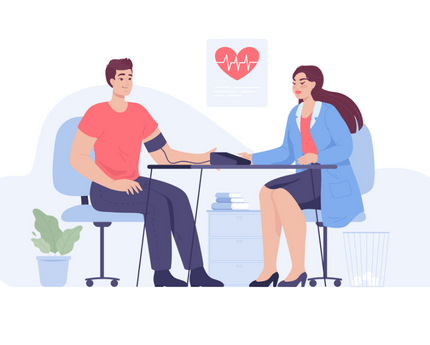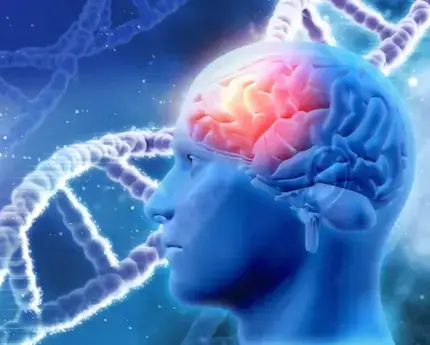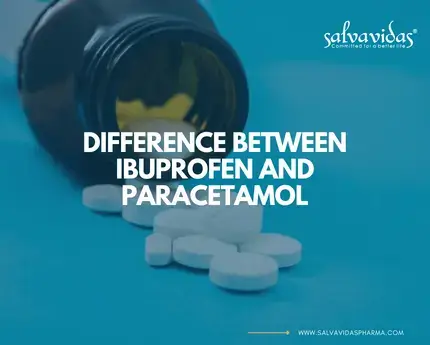
High Blood Pressure without Medication.
Blood pressure is the force exerted by blood on the artery walls as it circulates through the body. Blood pressure is controlled by several physiological systems. Blood pressure is affected by nerve and hormone signals from the heart, blood arteries, brain, kidneys, and digestive organs, for example. High blood pressure is a potentially fatal condition that causes heart damage.
It affects one out of every three Americans, one out of every four adults in India, and one billion people worldwide. Furthermore, if not controlled on time, it raises the risk of various heart diseases and strokes. A change in lifestyle is critical in the treatment of high blood pressure.
A healthy lifestyle can help you avoid, postpone, or reduce the need for medications.
*Different Methods for Keeping High Blood Pressure Under Control
1. Regular exercise
According to studies, regular exercise for approx 150 minutes per week or approximately 30 minutes for 4-5 days per week can reduce blood pressure by 5 to 8 mm Hg. However, stopping exercise halfway through can result in an increase in blood pressure. As a result, consistency in exercise is critical.
Exercising helps to prevent hypertension in people who have high blood pressure. It reduces blood vessel stiffness and tension. As a result, blood flows more freely, lowering blood pressure. Furthermore, regular exercise strengthens and improves the heart’s ability to pump blood. As a result, blood pressure in the arteries is reduced.
Physical activity includes walking, jogging, cycling, swimming, and dancing. They can assist you in lowering your blood pressure. High-Intensity Interval Training (HIIT) is another form of exercise that you can do on a daily basis. Strength training can also help you reduce your blood pressure. As a result, you should incorporate strength training workouts at least twice a week. You can also talk to your doctor about beginning an exercise regimen.
2. Reduce your alcohol consumption
Blood pressure can rise as a result of alcohol consumption. According to studies, alcohol is responsible for 16% of all cases of high blood pressure worldwide.
Alcohol also has an effect on the renin-angiotensin-aldosterone system (RAAS). The RAAS is controlled by the kidneys and regulates blood pressure with three hormones: renin, angiotensin, and aldosterone. Alcohol raises the level of renin hormone in the bloodstream and causes blood vessels to constrict.
Renin also reduces the amount of fluid excreted by your body through urine. Blood pressure rises as fluid levels rise and blood vessels narrow.
3. Reduce the sodium intake
Several public health initiatives and many social service organisations are working to reduce the use of salt in the food industry through regulatory controls. Several studies have found that a high salt intake can lead to high blood pressure and cardiac problems, including stroke. Excess sodium-rich foods may raise blood pressure by retaining extra fluid in the body. This adds to the strain on the heart. Too much sodium raises your chances of having a stroke, heart failure, osteoporosis, stomach cancer, and kidney disease.
Reduced sodium intake lowers blood pressure by 5 to 6 mm Hg. Sodium’s effect on blood pressure varies from person to person. However, you should limit your daily sodium intake to no more than 2,300 milligrammes (mg). For most adults, a daily sodium intake of 1,500 mg or less is preferable.
4. Caffeine Consumption Should Be Reduced
Caffeine is a vasoconstrictor, which causes blood vessels to constrict and blood pressure to rise. Caffeine can raise blood pressure by up to 10 mm Hg in people who do not consume it on a regular basis.
People who drink coffee on a regular basis, on the other hand, may experience little or no change in their blood pressure. It may also prevent your arteries from remaining as wide as they need to be for proper blood pressure regulation.
5. Consumed of Potassium-Rich Food
Potassium is essential because it aids in the elimination of excess sodium through urine, thereby maintaining sodium levels. Potassium promotes proper muscle function. It promotes the efficient function of the heart muscles. It reduces blood pressure by relieving stress in the blood vessel walls.
Potassium-rich foods include leafy greens, tomatoes, potatoes, and sweet potatoes, as well as fruits like melons, bananas, avocados, oranges, and apricots. Dairy products should also be consumed. Other potassium-rich foods include salmon and tuna, as well as seeds, nuts, and beans.
*Healthy Foods for High Blood Pressure
Incorporating healthy foods into one’s daily diet can significantly lower blood pressure. A healthy diet is essential for lowering blood pressure and maintaining a healthy level. Certain foods, particularly those high in vital nutrients like potassium and magnesium, help to lower blood pressure.
1. Tomatoes
Maintaining a low sodium intake aids in blood pressure control. Potassium consumption on a daily basis may be equally important due to its artery-widening effects. Tomatoes are high in potassium, which helps to keep blood pressure in check.
A high-potassium, low-sodium diet, according to one study, reduces the risk of death from any cause by 20%. Potassium promotes the proper functioning of muscles, including those involved in heartbeat and breathing. Although too much sodium can raise blood pressure, not enough potassium can do the same. It is because of the potassium-sodium relationship. Excess sodium is eliminated through urine when potassium is consumed. If the body does not receive enough potassium, sodium is reabsorbed and retained. As a result, potassium deficiency causes high blood pressure and hypertension.
2. Banana
Potassium-rich foods can help lower blood pressure. Bananas, for example, are high in potassium while being low in sodium. Diets high in potassium and low in sodium reduce the risk of hypertension, heart disease, and stroke.
High sodium levels in the body strain blood vessels and disrupt the body’s water balance. Consuming potassium-rich foods lowers kidney pressure and helps the body eliminate excess sodium by draining it through urine. Potassium also regulates blood pressure by regulating fluid and electrolyte balance in the body.
3. Dark Chocolate
According to research, the flavonoids in dark chocolate produce nitric oxide, which relaxes blood vessels and lowers high blood pressure. So buy high-quality chocolate with at least 70% cocoa content and eat 5-10 grammes of it every day.
The endothelium is the membrane that covers the heart and blood vessels. Endothelial cells secrete chemicals that control vascular movement, as well as enzymes that control blood clotting, immune activity, and platelet adhesion. Hypertension and high blood pressure are caused by damaged and improperly functioning cells. Flavonoids lower blood pressure by restoring endothelial function, either directly or indirectly through nitric oxide levels.
4. Citrus Fruits
Citrus fruits like grapefruit, oranges, and lemons have been shown in studies to lower blood pressure. It’s because they’re high in vitamins, minerals, and plant nutrients, which help to lower blood pressure and maintain heart health.
Citrus fruits are high in phenolic compounds, vitamins, minerals, dietary fibres, essential oils, and carotenoids. Furthermore, its antioxidant, anti-inflammatory, and anti-hypertensive properties, as well as improved endothelial function, all help to prevent heart problems.
The endothelium is the cells that line the blood vessels. These cells’ health is improved by phenolic acids. It also relaxes and widens the arteries, improving blood flow. They function similarly to the blood pressure medication Angiotensin Converting Enzyme (ACE). It is preferable to consume natural fruits rather than chemical-based medications.
Lemon juice and its crude flavonoid have been shown to lower blood pressure in hypertensive rats. Furthermore, a water extract from citrus fruit peels has beneficial effects.
5. Fatty Fishes Like Salmon
According to research, omega-3 fats found in fatty fish have significant heart health benefits. These fats lower blood pressure by reducing inflammation and oxylipin levels, which narrow blood vessels.
*High Blood Pressure Foods to Avoid
1. Food comprising salt or sodium
Salt, or more specifically the sodium in salt, is a leading cause of hypertension and heart disease. It is because of how it affects the fluid balance in the blood. Excessive salt consumption tightens and narrows blood vessels over time. As a result, vital organs receive less blood and oxygen. As a result, the heart has to work harder to pump blood throughout the body, raising blood pressure even higher.
Bread and rolls, pizza, sandwiches, cold cuts and cured meats, and tacos are all significant sources of sodium in people’s daily diets.
2. Cheese
Cheese is high in protein and calcium, but it also has a high saturated fat and sodium content. This means that eating too much can raise your risk of cardiovascular disease by increasing your cholesterol and blood pressure.
3. Sugar
Insulin resistance worsens as insulin levels rise. The body does not absorb magnesium because it does not respond to insulin. As a result, magnesium exits the body through the urine. When magnesium levels are extremely low, the arteries are unable to relax completely. It causes an increase in blood pressure by increasing artery tension.
Fructose sugar consumption may inhibit nitric oxide production in blood vessels. However, it raises uric acid levels in the body, leading to increased blood pressure. Nitric oxide is the most powerful vasodilator. It helps to maintain blood vessel flexibility, and when its levels are low, blood pressure rises.
Some of the high in sugar foods are cookies, cakes, pastries, ice cream, frozen yoghurt, candy, etc.
*Summary
Blood pressure medications, such as angiotensin-converting enzyme (ACE) inhibitors, are commonly used to lower blood pressure. Making lifestyle changes, such as dietary changes, can help significantly reduce blood pressure and other related heart problems.
As a result, it is always recommended that patients with high blood pressure, particularly those taking blood pressure medications, eat a healthy diet.
*FAQ
Q: Can bananas help with high blood pressure?
A: Yes, bananas can help with high blood pressure. They are high in potassium while low in sodium. Potassium consumption aids the body’s elimination of excess sodium. Excessive sodium stiffens and narrows the arteries. It obstructs natural blood flow, putting additional strain on the heart during blood pumping.
Q: What is a good high-blood pressure diet?
A: People with high blood pressure can benefit from a diet high in whole grains, fruits and vegetables, and lean protein foods. Limit your sodium intake while increasing your potassium intake. Dietary Approaches to Stop Hypertension is the name of this eating plan (DASH).
Q: What foods should I avoid if I have high blood pressure?
A: You should avoid sodium-rich foods. Canned meat, fish, or poultry, ham, pizza, canned soup, sausage, sardines, caviar, and anchovies, to name a few. You should also abstain from alcohol. Both sodium and alcohol constrict and stiffen the blood vessels. It puts a lot of strain on the heart to pump blood into constricted blood vessels.
Q: Does lemon water lower blood pressure?
A: All citrus fruits are good for your heart, especially if you have high blood pressure. Lemon contains flavonoids, which help the endothelium function properly. As a result, it results in better cardiovascular movements and less strain on the heart while pumping blood.
Q: Are eating eggs bad for your blood pressure?
A: Eggs have no discernible effect on blood pressure. Eggs are safe to eat in moderation, even if you have high blood pressure. However, excessive egg consumption can result in elevated cholesterol levels. Because of high cholesterol, it becomes more difficult for the heart to pump blood. It eventually raises the blood pressure level.
Q: Can BP patients consume almonds?
A: A lack of magnesium in the body is a major cause of high blood pressure. Soaked almonds, on the other hand, are high in magnesium. Magnesium stimulates the production of nitric oxide, which signals the brain to relax the blood vessels. As a result, eating almonds is beneficial for people with high blood pressure.
Q: How much water should a person with high blood pressure drink?
A: Patients with high blood pressure should drink six to eight glasses of water per day to stay hydrated. You should increase this amount if you are in a hot environment where dehydration is more likely.
Q: Is honey beneficial to people with high blood pressure?
A: Yes. Honey is beneficial for high blood pressure because it contains flavonols and antioxidants that may aid in blood pressure regulation. As a result, it helps to protect your heart health even more.
Q: Is milk safe for people with high blood pressure?
A: The calcium, potassium, and magnesium in milk are essential for lowering blood pressure. Furthermore, bioactive peptides are a type of protein found in milk that helps to lower blood pressure.
Q: Are grapes beneficial to one’s blood pressure?
A: Grapes contain a lot of potassium. Potassium can help prevent high blood pressure. As a result, they are a part of a healthy diet for people with high blood pressure.




0